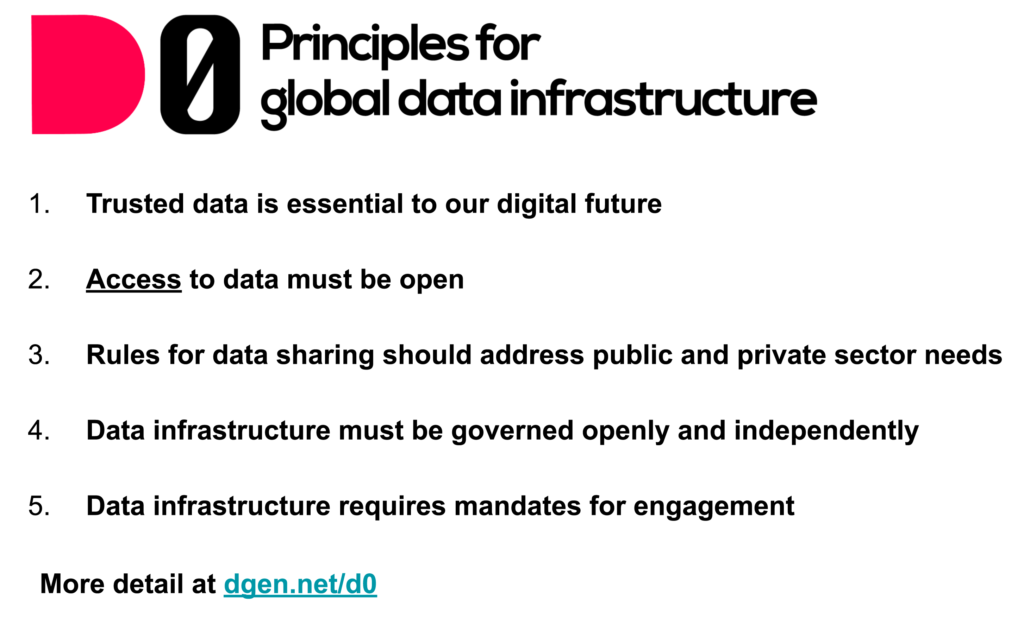
To unlock a market architecture for data sharing requires an open approach. [Open document for discussion here]
- Trusted data is essential to our digital future.
- Access to data must be open
- Rules for data sharing should address public and private sector needs
- Data infrastructure must be governed openly and independently
- Data infrastructure requires mandates for engagement
- Trusted data is essential to our digital future.
Accurate, trustworthy data that informs action is essential to decision-makers across society, industry and government. It helps derisk decisions, accelerates new solutions to market and enables transparent monitoring against targets. - Access to data must be open
Data must be made discoverable and accessible to those who need it. To unlock public and private sector benefits, the ability to effectively share data (using Open or Shared licenses) across sectors is essential. It includes both the real economy and the financial economy. Data must be machine-readable, and have open metadata to enable its discovery (following FAIR principles). - Rules for data sharing should address public and private sector needs
To enable access to data, the definition of the rules used to share it requires participation from diverse actors. Robust policies and standards can also support assurance and audit. Data owners need to be able to control who can access it in a manner that addresses commercial, legal and regulatory requirements. - Data infrastructure must be governed openly and independently
To maintain an open market, data infrastructure must include public and private sector actors in its design, implementation and enforcement. A market-neutral body is a preferred approach to developing such data infrastructure and will include remits of data governance, policy, licensing, technical and operational principles. This infrastructure needs to be developed, and iterated upon, at a pace that is relevant to the urgency of the issues being tackled. Both its processes, and outputs related to its implementation, should be openly licenced. - Data infrastructure requires mandates for engagement
To close data gaps as rapidly as possible and address the public interest, Governments and regulators should define rules for access to specific data, mandate participation and drive adoption. Similarly, industry initiatives can define rules for specific industry benefit, and act as catalysts to adoption. Common policies and open standards must create mandates for machine-readable data, data access processes, access control and mechanisms for enforcement that unlock data flow.
V2022-09-12
Example for Net Zero data, the Icebreaker Principles: https://ib1.org/icebreaker-principles/
Inspired by concepts of the Web of Data, Internet of Things, and Web of Things.
